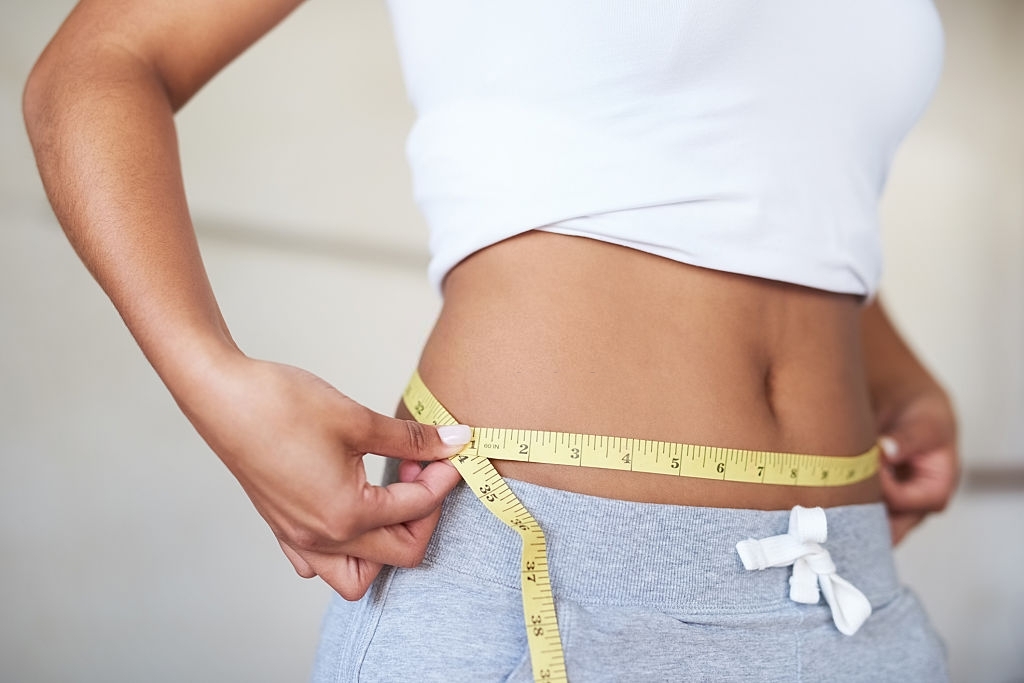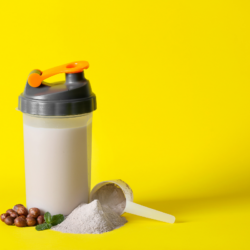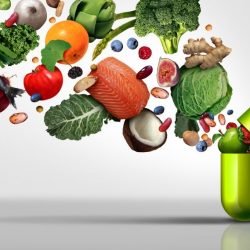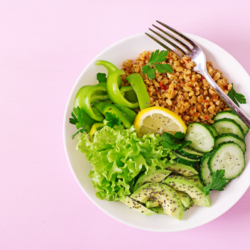The high-protein diet, also known as the Medical Protein Diet, is what you might call stage 0 of the high-protein diet. Weight loss is very rapid (generally -2 to -2.5 kilos / week), with no hunger or tiredness.
During this diet period, you consume only high-protein sachets, authorised vegetables, water and a vitamin supplement. This programme is generally divided into several phases.
What are the benefits of proteins for the body?
Protein burns calories:
Protein is a nutrient that burns calories thanks to the thermal effect of food. It is estimated that 30% of the calorific value of a protein is not metabolised by the body.
As a result, simply increasing the protein content of your diet can lead to significant weight loss, even without reducing your fat and carbohydrate intake.
How is this possible?
After eating, our bodies need energy to digest and metabolise the micronutrients in our food. This is known as the thermic effect of food. The metabolism of carbohydrates burns around 10% of calories, and that of fats 3%. Proteins are therefore expensive for the body, which burns up to 30% of calories just to digest them. In fact, if you ingest 100 calories from protein, only 70% will become usable calories.
Protein increases metabolism:
Reduced metabolism is one of the main causes of failure in slimming diets. You lose weight quickly in the first few weeks, then the weight stabilises and can even go back up! This is a normal phenomenon. To preserve its energy reserves during periods of ‘starvation’, the body automatically reduces the rate at which it burns them. Fat burning is slowed down, and muscle catabolism increased: the body draws on its resources to keep as many calories available as possible. This reduction in muscle mass and the rate at which the body burns calories automatically inhibits fat burning and, by extension, weight loss.
Consuming greater quantities of protein reduces muscle wasting, thereby maintaining a more active metabolism that is better able to burn calories.
Proteins increase satiety and reduce hunger by various mechanisms. Recent studies have shown that people who eat at least 30% protein in their diet consume an average of 450 fewer calories per day.
What’s even more striking is that people who eat a protein-rich breakfast and increase their protein intake throughout the day are less prone to sweet cravings and nibbling, and are much less hungry in the evening.
Protein modifies the body’s hormonal responses:
When we’re hungry and when we eat, the body secretes various hormones to determine how much food it needs. And when we eat a larger quantity of protein, the body secretes more satiating hormones such as leptin, and fewer ‘hunger-inducing’ hormones such as ghrelin. These hormonal changes lead to an automatic and natural reduction in calorie intake.
Why follow a protein diet?
Proteins are extremely important for losing weight and body fat. A high-protein diet can be extremely effective in combating obesity.
Firstly, eating more protein causes a temporary increase in your metabolism, so you burn more calories. Secondly, a high protein intake calms your appetite, preventing you from overeating and taking in too many calories.
A higher protein intake doesn’t just make it easier to lose weight: it also prevents you from (re)gaining weight. A modest increase of 15% to 18% in protein per day can help people who have successfully lost weight to maintain their target weight.
In short, eating a little more protein can help you stick to your diet and lose weight permanently.
In the Western world, only 15% of our diet consists of protein. An average that should be revised upwards. Most of our energy intake comes from (simple) carbohydrates.
We need to redress the balance by adopting a better macronutrient balance.
Where do we find proteins?
Proteins are obtained from food. Proteins can come from foods of plant origin and foods of animal origin.
There are a number of foods with a high protein content. Foods of animal origin and dairy products contain the most protein. They contain all the essential amino acids needed to build new proteins in the body. On the other hand, protein sources of plant origin often lack the essential amino acids that the body needs.
Animal proteins are found mainly in meat, eggs, poultry, seafood and dairy products. Opt for unprocessed meats such as steak, roast beef, tartare or minced meat. Better still, eat poultry (chicken or turkey, for example). As for dairy products, think milk, cheese and yoghurt.
The protein concentration in plant sources is generally lower than in animal sources. That said, certain plant-based foods such as nuts, seeds, beans and legumes contain sufficient protein.
Animal protein sources contain a large number of important nutrients that are often absent from plant sources.
For example :
- Vitamin B12: Vitamin B12 is found mainly in fish, meat, poultry and dairy products. People who avoid foods of animal origin often have vitamin B12 deficiencies.
- Vitamin D: Vitamin D is found in oily fish, eggs and dairy products. Some plant foods contain vitamin D, but the type of vitamin D found in animal foods is better absorbed by the body.
- Docosahexaenoic acid (DHA): This fatty acid belongs to the omega-3 family. It is vitally important for the eyes and the brain. It is found mainly in oily fish. However, it is difficult to obtain from plant sources.
- Haem iron: found mainly in meat, especially red meat. Haem iron is much better absorbed by the body than the non-haem iron found in plant-based foods.
- Zinc: Zinc is found mainly in animal protein sources such as beef, pork and lamb. Zinc from animal protein sources is also more easily absorbed than zinc from plant sources.
The different phases of the protein diet
The medical protein diet protocol is divided into 4 distinct phases:
- 1 Active phase ( ketosis)
- 2 Mixed phase
- 3 Consolidation phase
- 4 Autonomy phase (duration is equal to the time of the 3 previous phases combined)
Phase duration objectives :
Detox drying and losing 2 to 3 kg :
- Phases :
- 1 = 3 days
- 2 = 5 days
- 3 = 5 days
Carbohydrate withdrawal and loss of 3 to 5 kg :
- Phases :
- 1 = 5 days
- 2 = 7 days
- 3 = 7 days
Weight loss of 5 to 8 kg :
- Phases :
- 1 = 7 days
- 2 = 10 days
- 3 = 10 days
Weight loss of around 10 kg :
- Phases :
- 1 = 10 days
- 2 = 15 days
- 3 = 15 days
Weight loss of more than 10 kg :
- Phases :
- 1 = 15 days
- 2 = 3 weeks
- 3 = 3 weeks

Does your weight drop irregularly? That’s normal! But your body fat melts every day, because the water retained by the body varies from one day to the next.
A few tips on the medical protein diet
Vegetables allowed :
- All you can eat :
Asparagus, artichoke, chard, broccoli, celery, button mushrooms, cauliflower, kale, cucumber, gherkins, courgette, watercress, endive, spinach, fennel, bean sprouts, radish, salad..
- Limited to 150g per day for all of the following vegetables:
Aubergine, celeriac, Brussels sprouts, green beans, turnip, leek, pepper, tomato..
- Or :
120g minimum (for women) and 180g (for men) of lean meat (fat-free beef, veal, horsemeat, chicken, turkey, derinded and fat-free ham, rabbit) or liver (beef, chicken and veal), lean fish (whiting, plaice, cod, dab, sole, skate, monkfish, saithe, haddock, sea bream, bass, hake, st. Pierre, turbot, red mullet, scorpion fish, tuna au naturel) or shellfish (lobster, lobster, crab, prawn) or mussels (mussels, oysters, scallops).
- Or :
2 eggs (for women and 3 eggs (for men).
Authorised seasonings :
Salt, pepper, strong mustard, spices, garlic, onion powder, herbs, vinegar (except balsamic), lemon juice, first cold-pressed olive oil.
Authorised drinks:
Water (at least 1.5 litres a day), Hepar water if constipation, tea, coffee, herbal teas and sugar-free infusions.
A few health recommendations
- Before starting a medical protein diet, it is essential to do a detox before starting the programme
- During the programme, if you have transit problems, you may be advised to take probiotic supplements
- Before starting the diet, if you feel tired or stressed, you may be advised to take magnesium and/or polyvitamin supplements
- If you take part in sporting activities during the programme, you may be advised to take a basifying supplement
The importance of dietary protein in preventing skin slackening
As part of a slimming regime, a protein diet is essential to prevent skin slackening. Proteins are crucial for :
- Collagen and elastin synthesis: These structural proteins keep the skin firm and elastic.
- Building muscle mass: Proteins support muscle development, providing subcutaneous support and reducing the risk of sagging skin.
- Cell regeneration: They promote the regeneration of new skin cells, keeping skin healthy.
It is recommended to include a variety of protein sources in your diet to take full advantage of their positive effects on the skin.
Eat more protein to avoid gaining weight during the menopause
The scientific article entitled“Weight gain during the menopause transition: Evidence for a mechanism dependent on protein leverage” examines in detail the phenomenon of weight gain observed during the menopause transition, focusing on the potential role of protein consumption in this process. This study postulates that, during the menopause period, women experience an increase in their protein requirements, as a direct consequence of the accelerated breakdown of protein tissues. This biological change leads to an appetite specifically geared towards protein, which is regulated by various hormones associated with muscle and liver function.
The research highlights the importance of this specific appetite for protein in weight management during the menopause. It suggests that maintaining an adequate protein intake could play a crucial role in preventing excessive weight gain during this period of life. The relationship between protein intake and body weight regulation would thus be influenced by hormonal mechanisms, which could be disrupted during the menopause.
These discoveries concerning the protein diet could have significant implications for the development of dietary strategies aimed at providing better support for women during the menopause. A better understanding of how protein requirements evolve during this period could help to develop more targeted and effective nutritional recommendations for managing body weight and maintaining good general health.
The slimming boost
If your aim is to lose weight locally, use a CLA-based dietary supplement (if you’re not active) or L Carnitine (if you are active).
Burners, appetite moderators and fat and sugar sensors are not necessary for the duration of this programme.
Sources
- Weight gain during the menopause transition: Evidence for a mechanism dependent on protein leverage. Stephen J. Simpson, David Raubenheimer, Kirsten I. Black, Arthur D. Conigrave. First published: 08 September 2022







